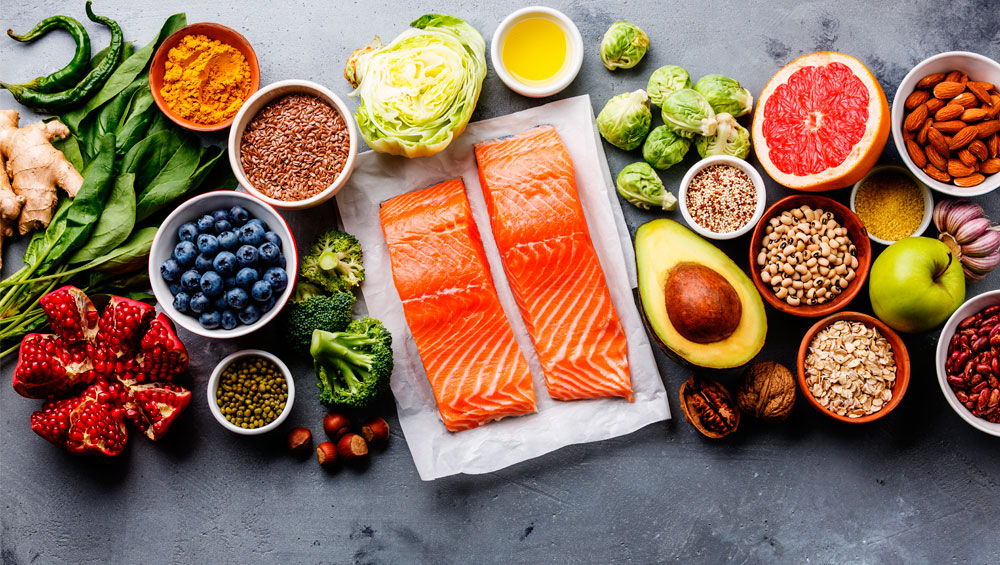
Nourishing Wellness: The Essence of Clean Eating
Clean eating is more than just a trend; it’s a lifestyle that prioritizes whole, unprocessed foods for optimal health. In this exploration, we dive into the principles and benefits of clean eating, understanding how it can be a cornerstone for overall well-being.
Defining Clean Eating: A Return to Whole Foods
Clean eating revolves around the concept of consuming foods in their most natural, unaltered state. This means favoring whole fruits and vegetables, lean proteins, whole grains, and minimizing the intake of processed and refined foods. The emphasis is on simplicity and choosing foods that are as close to their original form as possible.
Nutrient Density: The Powerhouse of Clean Eating
One of the primary benefits of clean eating is the inherent nutrient density of whole foods. Fruits and vegetables, in particular, are packed with vitamins, minerals, antioxidants, and fiber. By focusing on nutrient-dense foods, clean eating provides the body with the essential building blocks for optimal functioning and overall wellness.
Minimizing Processed Foods: A Key Principle
Clean eating involves reducing or eliminating processed and refined foods from the diet. Processed foods often contain added sugars, unhealthy fats, and artificial additives that can contribute to various health issues. By choosing whole foods, clean eating helps avoid these potentially harmful substances, promoting better health outcomes.
Balancing Macronutrients: A Holistic Approach
Clean eating encourages a balanced intake of macronutrients—proteins, carbohydrates, and fats. Rather than fixating on specific diets, clean eating promotes a balanced and varied approach to macronutrient consumption. This balance supports sustained energy levels, satiety, and overall nutritional adequacy.
Hydration: A Fundamental Element of Clean Eating
Proper hydration is a fundamental aspect of clean eating. Water is essential for digestion, nutrient absorption, and the elimination of waste from the body. Choosing water as the primary beverage and staying adequately hydrated enhances overall well-being and supports the body’s natural detoxification processes.
Mindful Eating: The Connection Between Food and Well-Being
Clean eating extends beyond food choices; it embraces the practice of mindful eating. Paying attention to hunger and fullness cues, savoring the flavors of each bite, and being present during meals fosters a positive relationship with food. Mindful eating is a valuable component of clean eating, promoting a holistic approach to wellness.
Supporting Digestive Health: Fiber-Rich Clean Foods
Clean eating naturally includes foods rich in dietary fiber, such as fruits, vegetables, and whole grains. Fiber supports digestive health by promoting regular bowel movements and a healthy gut microbiome. A well-functioning digestive system is vital for nutrient absorption and overall vitality.
Energy and Vitality: Clean Eating in Action
Many individuals who embrace clean eating report increased energy levels and a sense of vitality. By nourishing the body with wholesome foods, providing the necessary nutrients for optimal function, clean eating can positively impact overall energy levels, supporting an active and vibrant lifestyle.
Sustainability: Clean Eating for the Long Run
Clean eating is not a short-term diet but a sustainable lifestyle choice. By prioritizing whole foods and minimizing reliance on processed options, individuals can cultivate habits that support long-term health. This sustainable approach contributes to a resilient and robust foundation for overall well-being.
Incorporating clean eating into your lifestyle is a transformative journey towards wellness. To explore a variety of high-quality clean eating options, visit Clean Eating. Nourish your body with the essence of clean eating and experience the positive impact on your health and vitality.
